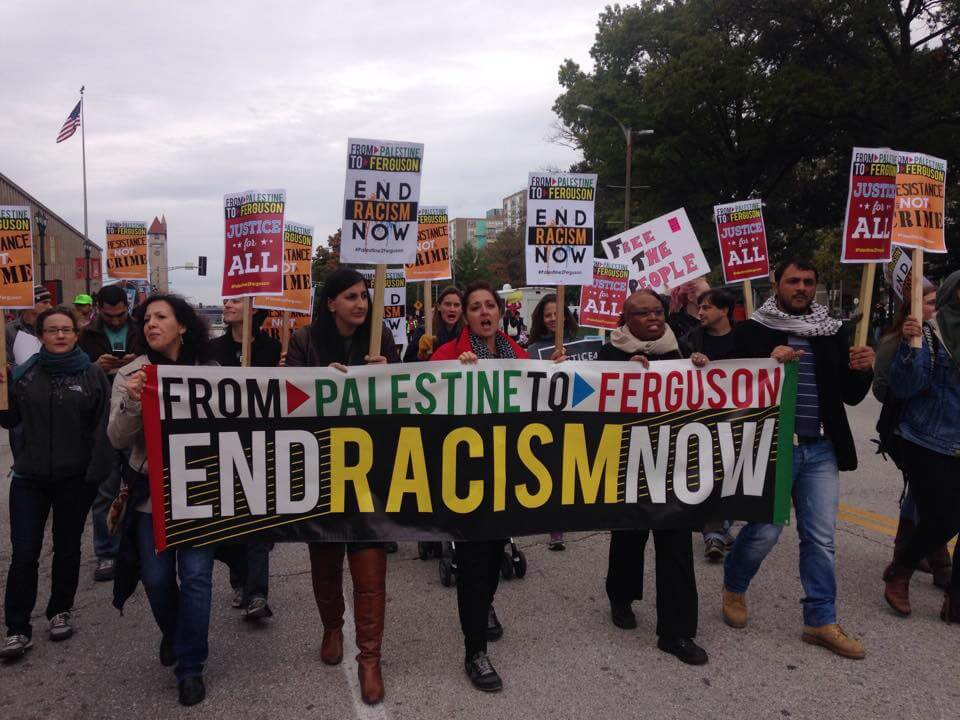When I was growing up in the U.S. in the 1970s, I would often need to fill out some official form that asked for race or ethnicity. I always marked the box for “white” and sometimes “Caucasian.” I didn’t think much of it at the time. My Jewish identity wasn’t yet particularly developed. Of course, I was white. What else could I be?
That’s come back to bite me – and Jews everywhere – big time.
To be white these days “is a kind of slander,” writes The Jerusalem Post’s Seth Franzman. Jews have been transformed into “white Jews” which Franzman correctly notes is, at its core, “anti-Jewish.”
Muslims in Albania are not called “white Muslims,” he points out. Nor are there any “white Hindus,” “white Buddhists” or “white Catholics.”
“Only Jews are called ‘white Jews,’” Franzman stresses, which forces them into the ‘white category in America, the category that means ‘majority’ and ‘privileged.’” As a result, in some American circles, identifying as Jewish “has become synonymous with ‘white supremacy,’” he says.
That amalgamation is “obscene,” writes former Jerusalem Post editor and current The New York Times columnist Bret Stephens, in that it “lumps Jewish Americans with the sort of people who marched in Charlottesville [in 2017] chanting ‘Jews will not replace us.’”
Tell that to Rebecca Vilkomerson, executive director of Jewish Voice for Peace.
“We white Jews especially need to recognize that centering our own status as victims here is a power move, as well as a way to avoid self-reflection on our relative status in a white supremacist world,” Vilkomerson tweeted last year.
“The United States today is undergoing a cultural transformation as radical as the one last seen in the 1960s,” writes Stephens. Among the most disturbing changes: “Race is replacing ethnicity as a defining marker of group and personal identification.”
Nor is it limited to American Jews. Israelis are now being castigated as “white.” And if Israeli Jews are white, then who are the people of color that these “white Jews” must be oppressing through their white supremacy? The Palestinians, of course.
Daniel Gordis, whose most recent book is Saving Israel: How the Jewish People Can Win a War That May Never End, refers to a letter penned by 93 American rabbinical students after Israel’s early summer operation in Gaza, in which the authors assert that American Jews are “part of a racial reckoning [that asks] ‘how are we complicit with racial violence” in Israel and Palestine?
Gordis responds: “Whatever one wants to call what is happening in Israel, or what happens periodically with Hamas, it is not racial violence.” Rather, the desire to see Israel as a reflection of America’s unique history with racial injustice is a “wholly Ashkenazi take” which would be ironic if it weren’t so ignorant, since the majority of Israel’s Jews are not Ashkenazim but Mizrachim who would never consider themselves “white.”
Jews who hail from the Middle East, who were expelled from the countries in which they had lived for centuries and whose appearance is often indistinguishable from other non-Jews in the region, are not, as Tablet’s Liel Leibowitz calls, “white passing” or “functionally white.”
“As an Israeli, and the son of an Iraqi Jewish mother and North African Jewish father, it’s gut-wrenching to witness this shift,” laments Hen Mazzig, a senior fellow at the Tel Aviv Institute, in the Los Angeles Times.
But if a simplistic black vs. white, oppressor vs. oppressed explains “everything” in America, notes Gordis, “it must explain everything that’s wrong with Israel too.”
If the Israeli-Palestinian conflict is about race, Gordis posits, “There are not two sides with narratives that need to be heard, but rather, one side good, one side evil. [So] if you’re a Zionist, you’re a racist.”
“Israel, like America, is deeply messed up,” admits journalist and author Matti Friedman. It’s just “messed up in completely different ways.”
Western observers “are often tempted to see foreign countries as mirrors of their own, because it makes a story more compelling for members of their audience, who are interested—who isn’t?—mainly in themselves,” Friedman continues. “So, Narendra Modi of India is Donald Trump, France’s problem is racial inequality, and Dutch conservatives are Republicans.”
“In reality, Israel is one of the most multicultural societies on earth, composed of immigrants from around the world,” notes Susie Linfield in an excellent analysis in The Atlantic entitled “Palestine isn’t Ferguson,” referring to the riots that erupted in that Missouri town following the fatal shooting of Michael Brown.
How did we get here?
The U.S. has abandoned the proverbial “melting pot” metaphor for “a country of unyielding binaries, in which people are grouped as being either ‘of color’ or ‘white,’” writes Stephens. “The result is that the vast majority of Jewish Americans…are being shunted into a racial category with which few have consciously identified [and]which is alien to Jewish cultural, religious, and political traditions.”
“The story of the Jewish minority in Europe and in the Islamic world, which is the story of Israel, has nothing to do with race in America,” Friedman writes. “My grandmother’s parents and siblings were shot outside their village in Poland by people the same color as them.”
Every country, every conflict and every individual should be judged on its own merits. This destructive binary applies an unfair and inappropriate American lens on Israel and the conflict. That won’t help us come to any kind of an equitable resolution. It will only lead the players who have the most at stake to dig their heels in further.
Getting there will require nuance, empathy and intellectual rigor. Sadly, I’m not sure if that’s something Americans know how to do anymore.
Palestine/Ferguson image from NFG – Neighborhood Funders Group.
I first wrote about Jews not being white for The Jerusalem Post.


